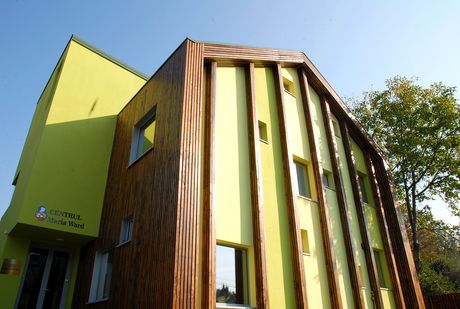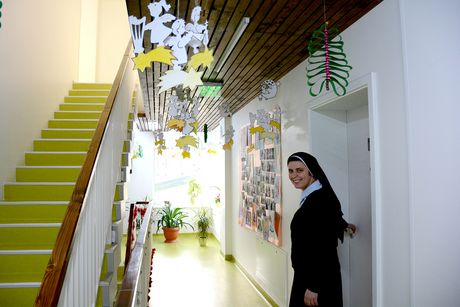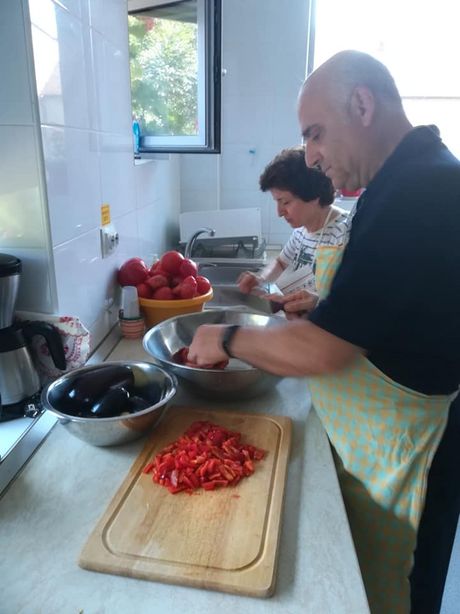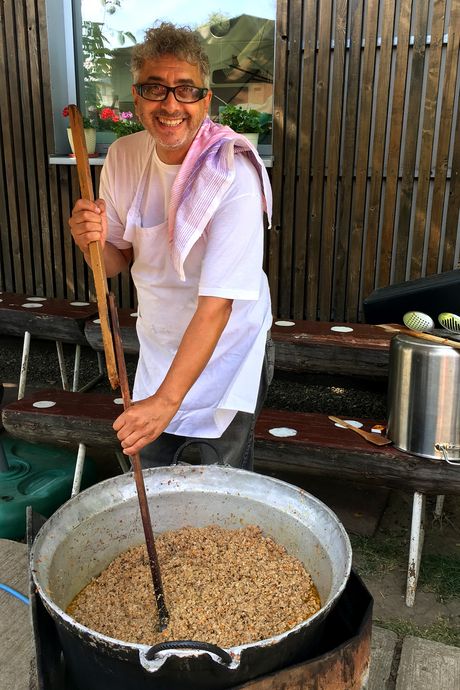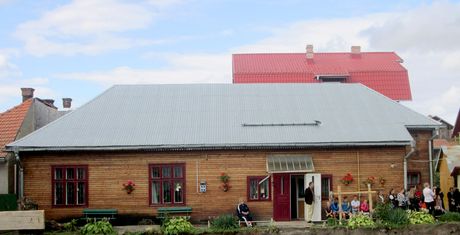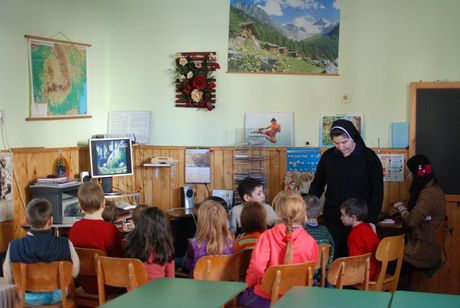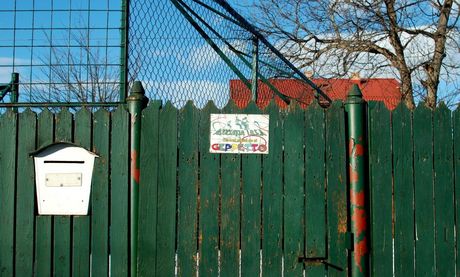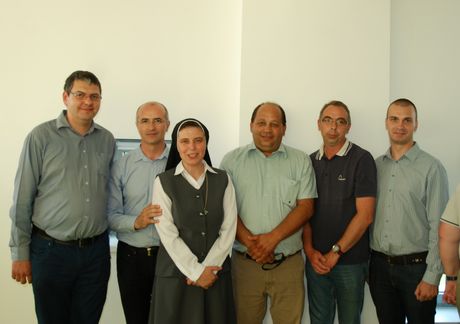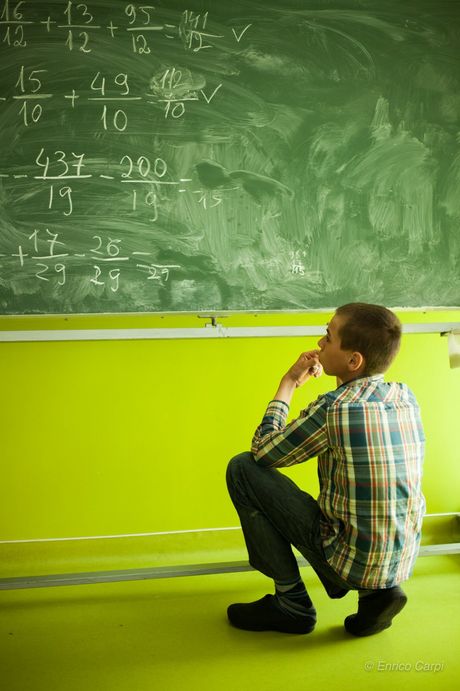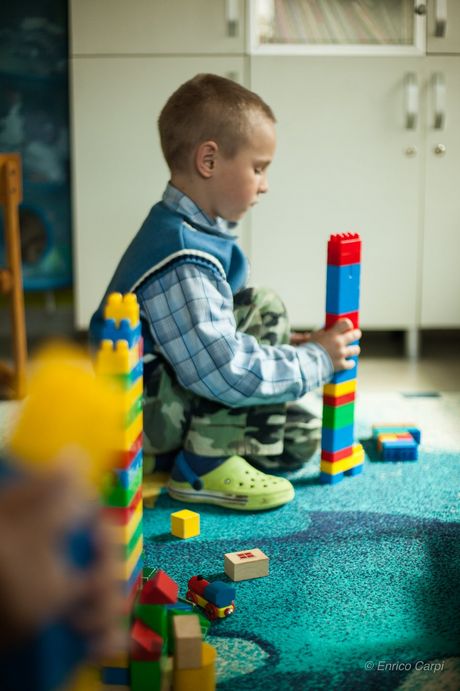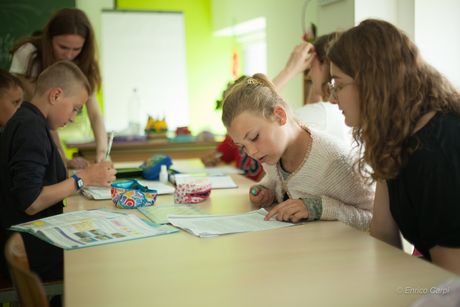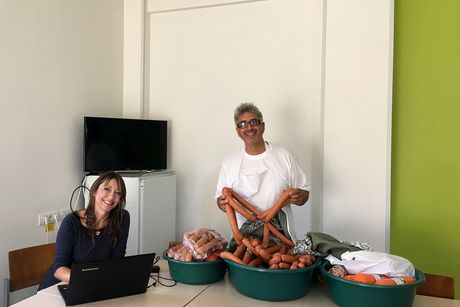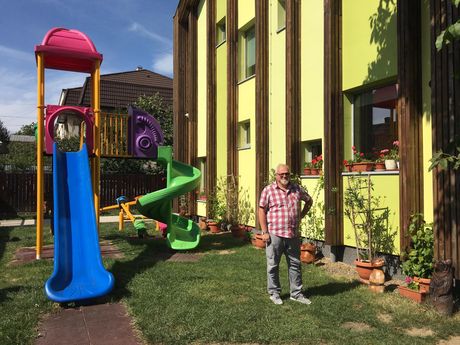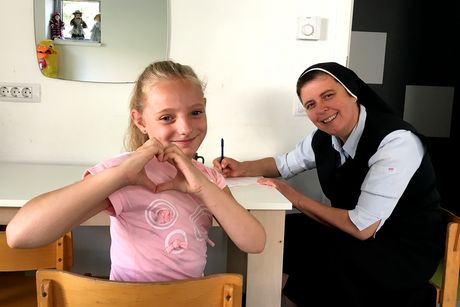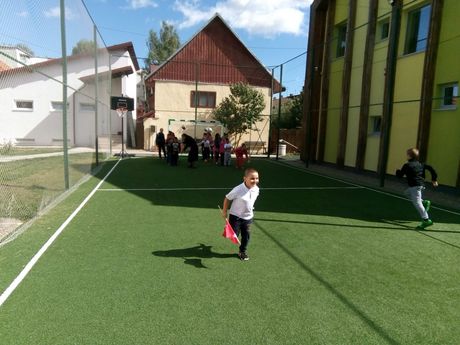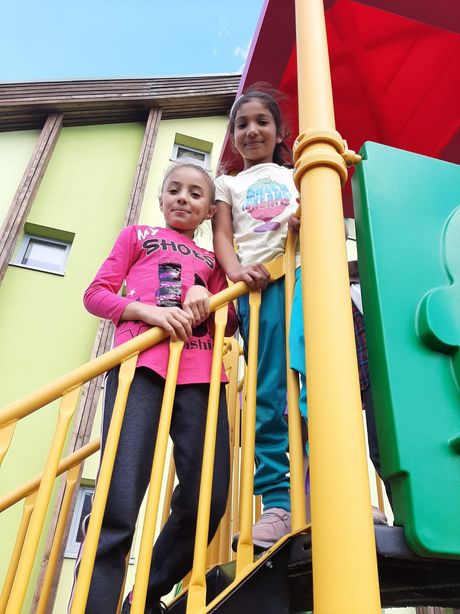Maria Ward Social Centre five years on
"No matter how hard life is, you have the resources and the strength to go on"
It was about five years ago, on a beautiful autumn day, when we were in the courtyard of the Maria Ward Social Centre in Rădăuți. A lot of friends - journalists, sponsors from Romania and abroad, local authorities, the team of architects, engineers and builders, along with representatives of religious cults - attended with an open heart the inauguration ceremony of the new building that was to become a new home for the 50 children from disadvantaged backgrounds.
Returning to the centre, at the beginning of September 2019, also on a sunny, light breeze day, we are greeted by the nice smell of the ragu sauce that was being prepared in the yard, in a huge pot. This will be used in wintertime, when the children will enjoy pasta with a sauce made by an Italian masterchef.
Along with the staff at the centre, five Italians brighten the atmosphere: Tonino - president of an Italian association, together with his wife Fortunata, Graziano - doctor in Scandinavian literature and languages and journalist, Monia - journalist and member of the NATO Peace Corps, Maurizio - entrepreneur, masterchef and master brewer. They all clean vegetables, stir the sauce in the pot, wash, iron and prepare various things, because once the school starts, the 50 children will return to the centre on a daily basis to resume their activities.
The roots of the Maria Ward Social Centre
But the story that is now being written at the Maria Ward Social Centre begins more than 20 years ago, when Tonino and Fortunata, two Italian spouses, visited Romania for the first time. Deeply impressed by the social needs of vulnerable groups, they set up a soup kitchen in Rădăuți, which later became - in 1994 - the I.S.E.A. Gepetto Association. It was intended, as it is now, to provide support to children from underprivileged families so as not to drop out of school and family, to provide them with hygiene education, counselling and speech therapy services.
Sister Felicitas reveals how an old, two-room house has been transformed into a wonderful children's universe: "I was sent to Rădăuți nine years ago, in order to create a vision of the centre, a strategy and a team with strong and clear principles.” But the house with snow in the hallways and insufficient space for activities set obstacles for the accreditation and licensing of the centre. "God, these are your poor children, you have to take care of them, please," she recalls. "And I felt this inner voice in response to my prayer: don't worry. I'll take care of everyone.”
On a frosty winter day, the sister gathered important people in the community who knew the centre at the time, and she presented the situation. "We came to Rădăuți and we are nuns, but these children are not our children, they are the children of the community. Would you like this project to go ahead or stop here? Now we have to decide."
The final conclusion of the meeting in February 2012 was the draft of a financing request for the construction of a new centre. "I have presented this project to several companies. To my great surprise, Holzindustrie Schweighofer has agreed to fully finance the construction of the entire building,” continues sister Felicitas. "It was August 2013, and I received a phone call from the director of the company in Rădăuți, who told me that the project was accepted and I am going to receive the money. I was scared! I said I didn't want the money.”
"I wanted to have a team of specialists"
Sister Felicitas has experience in the social field, and the responsibility of building a modern centre that involves many resources was a challenge. "I must admit I was scared to start this construction project, having no experience in the field. It's not easy. I didn't want the money, but a team of specialists,” says sister Felicitas. Construction of the new building has started in September 2013, and on September 9, 2014, a year later, the centre was inaugurated.
"It was a miracle. We had everything from the teaspoon and the fork to the interior fittings, everything! It was titanic work on all levels,” the sister continues. "I had a team of extraordinary people behind me, who helped me a lot and I thank them! Construction engineers, architects, sponsors - they are all friends of the centre, people who have put a lot of soul into our goal.”
Sister Felicitas believes that the "extra-extraordinary" people who worked together to build the new centre are "a wonderful gift. I felt that I was safe with the people that God brought me. This involvement is seen in the children’s development: they grow up beautifully here, they benefit of education and they evolve. A child who never knew how to wash their hands, brush their teeth, is now a child in the 7th, 8th grade, has learned what hygiene means, knows how to set the table, how to clean after themselves, how to write a request, for example."
The sister did not imagine, in September 2014, how the activity of the centre will evolve over five years.
Everyone who comes here feels like a family
From the house where snow covered the hallways to the current modern building, there are now conditions to carry out all the proposed activities: there are rooms for counselling, speech therapy, homework, laundry, separate space for food preparation, playing areas, a cellar and storage space for vegetables. The Maria Ward Social Centre offers access to food, some children are eating here even two meals a day and also receiving food for home, because they have nothing to eat there. Thus, the activity of the Centre goes beyond its gates and not only in Rădăuți but also in the neighbouring villages.
Psychological counselling and therapy apply both to children and parents who need support, because they face various problems: domestic violence, difficulty in finding a job (because some have not completed any form of education), parents who have gone abroad and are no longer returning home. The psychologist and the specialized personnel provide assistance to the entire family for a harmonious development.
Now, the new building offers space for other activities. "For families, a greenhouse was created, where we grow vegetables and we can prepare together the ‘zacusca’ (a traditional Romanian dish made out of vegetables). We also have chickens and we have eggs and meat. The activities now take place in a normal and pleasant way, because we have space and it is very important: everyone who comes here feels like in a family,” stresses the sister.
"I never thought about what would happen in five years. I was very glad that we had conditions. Before it was cold, snow and wind in the building and the children were crowding. In addition, the number of employees has increased. Now there are more than I had before, because the services have expanded a lot. We have specialized personnel: a psychologist, social worker, social educator, administrator, cook, cleaning staff. The Maria Ward Social Centre has grown a lot. It is not a praise, but a reality."
Wealthy people cook zacusca
The main purpose of the centre is to prevent family and school dropout. To this aim, volunteers from Rădăuți - teachers and high school students – and also people from abroad are pleased to contribute.
Monia, Tonino's friend, remembers that 15 years ago he told her about the projects and activities that he carried out in support of children in Romania. The curiosity pushed her to come to Rădăuți and to participate in the activities carried out by the nuns from the centre and, she says: “at that time it was not yet this modern centre, just a small house, but it was still a pleasant surprise for me." Since then, she has been involved in fundraising activities for the centre and in addition "when I come here I try to help with daily activities and I also make zacusca.”
In her turn, Monia invited Maurizio to come to Maria Ward Social Centre and for five years, he has tried to come to the place even two times per year, in order to help. "I really like these children and I like helping sister Felicitas," he says. "She is a good person and everything she does, she does it with an open heart." Maurizio acknowledges that it is difficult to take care for 50 children daily, but the reward is greater than the efforts. "I am so glad when the kids like the Italian dishes I cook for them," Maurizio says while he stirs the ragu sauce.
Graziano is at his first visit to Romania, after Monia and his friends told him a lot of stories about this country. At the beginning, he was very interested in visiting the monasteries in Bukovina, he tells us while he also stirs the ragu sauce. After three days spent at the centre, "I realized that I can do something much more important here than just being a tourist. Here I learn a lot, I am happy and grateful to be at the Maria Ward Social Centre.” Graziano is a journalist in his daily life - he writes about tourism. His brief experience here has shown him what is important to him. "This is important, to help these children. Volunteering for such a cause is an experience that everyone should go through at least once in their life. Maybe I'm not doing something extraordinary for these kids right now, but I'm doing something, and I'm getting back more than I can offer,” Graziano now believes.
The most beautiful thing
The coordinator of the centre observes that there are children who have succeeded in life, practically thanks to all the services they have received at the centre.
“They managed to go to high school, although they had very big problems in school, and now they are coming back here as volunteers. They already know the way things work here, they are grateful for what they have become and, in their turn, they want to give something back and support the children.”
Sister Felicitas tells us, at the end of the visit, the most beautiful thing that they all do there: “We help the poor children and prepare them for life. We explain to them the challenges of life and tell them that no matter how hard times they are having in life, they can change their direction, to get out of their vulnerable area. They have the resources and the strength to move on."
Graziano: ”This is important, to help these children. Volunteering for such a cause is an experience that everyone should go through at least once in their life.”
Felicitas: "We explain to them the challenges of life and tell them that no matter how hard times they are having in life, they can change their direction."
